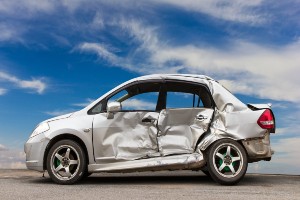
This can be very confusing and frustrating, especially if you’re still making payments on your car loan. You may be wondering what you’re supposed to do next.
The first step is to understand why your car was declared a total loss. There are a few reasons this could happen, such as:
- The car was in a major accident and the repairs would be too expensive
- The car was stolen and never recovered
- The car was damaged in a natural disaster, such as a flood or fire
Once you know why your car is considered a total loss, you can start to figure out your next steps.
If your car was financed, you’ll need to work with your lender to figure out what to do about your loan. If your car was paid off, you’ll need to decide whether you want to buy a new car. You can also accept a cash refund from the insurance provider.
Keep in mind that even if your car is considered a total loss, you may still owe on your loan. This is because the value of your car is usually less than what you owe on your loan. In this case, you’ll need to work out a payment plan with your lender.
Ask your agent if you have any questions about what it means to have a total loss on your car insurance policy. They can help you understand your options and figure out the best course of action for your situation.
Can I Include the Vehicle’s Value in a Personal Injury Lawsuit?
If you’ve been in a car accident, you may be wondering if you can include the value of your vehicle in a personal injury lawsuit. The answer depends on several factors. This includes the severity of the damage, the insurance coverage you have, and the laws of your state.
In general, if your vehicle was damaged in an accident that was caused by someone else, you may be able to recover the cost of repairs or replacement. If the damage is extensive, you may also be able to recover the “loss of use” value of your vehicle. That’s the value of not being able to use your vehicle while it is being repaired or replaced.
However, there are some limits on what you can recover.
For example, most insurance policies will only cover the actual cash value of your vehicle. This is not the “book value” or replacement cost and might be significantly different. And in some states, there may be limits on the amount of damages you can recover.
What do Maryland Insurance Companies Consider a Total Loss and What Can You Do?
If you have any questions about whether you can recover the value of your vehicle in a personal injury lawsuit, speak with an experienced personal injury attorney in your state.
For more information or to discuss a vehicle accident with an experienced personal injury attorney, contact ShugarmanMehring at 410.783.4200 or toll-free at 888.342.7200.

